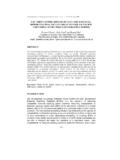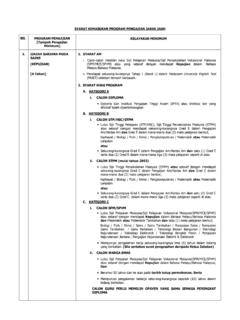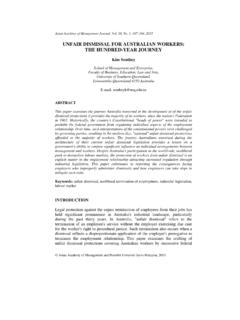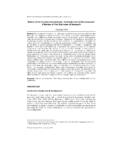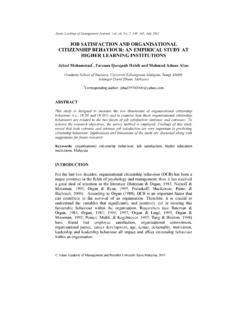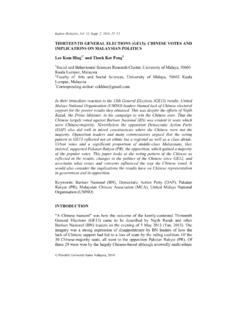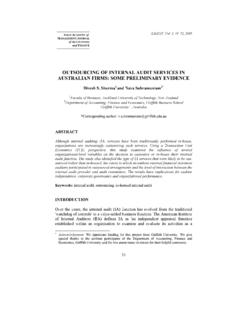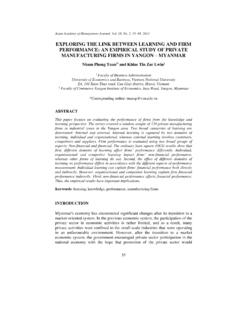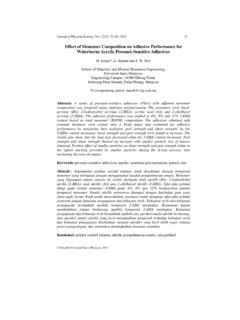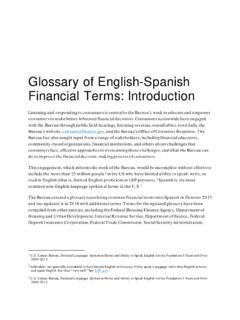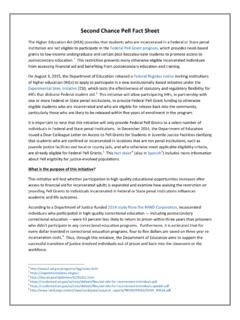Transcription of FACTORS CAUSING DIFFERENCES IN THE FINANCIAL …
1 Asian Academy of Management Journal, Vol. 13, No. 2, 111 129, July 2008. FACTORS CAUSING DIFFERENCES IN THE FINANCIAL . REPORTING PRACTICES IN SELECTED SOUTH PACIFIC. COUNTRIES IN THE POST-CONVERGENCE PERIOD. Parmod Chand1, Chris Patel2 and Ronald Day3. 1,2. Macquarie University, New South Wales 2109 Australia 3. The University of Sydney, New South Wales 2006 Australia e-mail: ABSTRACT. The international accounting literature pays much attention to the clustering of national accounting systems of various countries based on similar FINANCIAL reporting characteristics. In this paper, we argue that the existing models that cluster countries are substantially incomplete and misleading due to the recent convergence efforts that have taken place. We identify the FACTORS that may be CAUSING DIFFERENCES in both the de jure and de facto aspects of comparability in FINANCIAL reporting across countries in the post- convergence period.
2 Using four countries from the South Pacific region (Australia, New Zealand, Papua New Guinea and Fiji), we identify three dominant FACTORS that still act as constraints in accounting convergence. These include: (1) the nature of business ownership and the FINANCIAL system, (2) culture, and (3) the level of accounting education and the experience of professional accountants in each of the different countries. We argue that national and international regulators need to work towards reducing these remaining DIFFERENCES across countries to achieve the objectives of accounting convergence. Keywords: South Pacific region, accounting convergence, harmonisation, adoption, DIFFERENCES , explanatory FACTORS INTRODUCTION. The International Accounting Standards Board (IASB) develops International FINANCIAL Reporting Standards (IFRSs) with the objective of achieving comparable FINANCIAL reporting across countries.
3 Achieving comparability in FINANCIAL reporting requires that IFRSs (1) be adopted by countries in a similar manner, and (2) be interpreted and applied in a consistent manner across various countries. The international accounting literature has defined these two aspects of comparability in FINANCIAL reporting as de jure (consistency in form or rules) and de facto (consistency in actual application) accounting. In adopting IFRSs, if countries make drastic amendments to IFRSs or if professional accountants are not able to interpret and apply the standards in a consistent manner, then comparability in FINANCIAL reporting cannot be achieved. Moreover, prior studies 111. Parmod Chand, Chris Patel and Ronald Day have found that de jure consistency in accounting standards across countries will not necessarily result in de facto consistency (Schultz & Lopez, 2001; Rahman, Perera, & Ganesh, 2002).
4 The background presented above suggests an obvious question of whether the convergence of accounting standards will lead to comparable FINANCIAL reports across countries. In particular, it is important to identify the nation-specific FACTORS that may be acting as constraints in the post-convergence period. A. country's FINANCIAL reporting system is affected by the local environment and tends to reflect cultural, economic, professional and institutional pressures and influences (Hopwood, 2000, p. 763). Therefore, while the forces of globalisation and convergence are moving accounting practices towards the use of a unified regulatory framework for FINANCIAL reporting, individual country contextual FACTORS may still act as constraints to consistent implementation. While scholars have argued that adopting IFRSs will result in comparable FINANCIAL reporting, this argument assumes that IFRSs will be both interpreted and applied consistently, and assumes that FACTORS such as culture and environmental DIFFERENCES among the nations are easily overcome.
5 Hopwood (2000, ) suggests that "[at] the very time when there are enormous pressures for convergence of forms of FINANCIAL accounting, our insights into the FACTORS resulting in earlier DIFFERENCES in such practices are still poorly developed". With convergence, some FACTORS that were previously regarded to be major FACTORS contributing to these DIFFERENCES , such as the content of the accounting standards, have now been eliminated. However, other FACTORS that contribute to DIFFERENCES between nations, including infrastructure, culture, legal requirements, socioeconomic and political systems, and individual DIFFERENCES among accountants, still remain. Therefore, a complete commonality and uniformity in standards and, by inference, in FINANCIAL reports may not occur even after adopting IFRSs. A number of studies attempt to classify national accounting systems based on fundamental FINANCIAL reporting characteristics.
6 Several models were developed to identify FACTORS that may explain DIFFERENCES , and show areas of similarity between countries (Mueller, 1967; Nair & Frank, 1980; Nobes, 1983, 1998; Gray, 1988; Doupnik & Salter, 1995; Nobes & Parker, 2004). For example, studies such as Mueller (1968), Mueller, Gernon, & Meek (1994) and Nobes and Parker (2004) cluster nations that have similar patterns of accounting development based on "zones of influence" criteria. 1 This strand of research shows that the 1. The American Accounting Association (1977) provided the following classification of five zones of influence British, Franco- spanish -Portuguese, German-Dutch, United States and Communistic. A more recent classification by Mueller et al. (1994) identified four zones of influence British-American, Continental, South American and Mixed economy. 112. FACTORS CAUSING DIFFERENCES in FINANCIAL reporting practices development of national accounting systems appears to be a function of environmental FACTORS such as cultural, economic, educational and legal systems (Gray, 1988; Perera, 1989; Doupnik & Salter, 1995; Zarzeski, 1996; Jaggi &.)
7 Low, 2000). Other research that focuses on applying a set of standards in a country shows FACTORS such as the organisational culture and individual attributes of the accountants (such as the level of expertise, familiarity with the concept and complexity of the task) have an important impact on the application of the rules (see Libby & Luft, 1993; Bonner, 1994; Doupnik & Salter, 1995; Nobes, 1998). Overall, previous research presents country-level DIFFERENCES in accounting practices either at the macro level (political, legal, colonial, cultural and economical FACTORS ) or the micro level (individual companies, industries and organisational culture), or relates the DIFFERENCES to the individual attributes of the accountants (experience, education, ability and motivation). Therefore, while there are a number of studies that assess international DIFFERENCES in FINANCIAL reporting, these studies are limited in scope.
8 There is lack of both theoretical and empirical research that collectively provides a more complete framework of FACTORS that cause country-level DIFFERENCES in accounting practices. In addition, much of this research focuses on the now-outdated pre-convergence period, despite recent efforts towards convergence. This paper makes both theoretical and practical contributions to the research that has identified country-level DIFFERENCES in accounting practices. The primary objective of this study is to identify nation-specific FACTORS that continue to act as constraints in the post-convergence period. The paper does this by examining the process of convergence in four South Pacific countries (Australia, New Zealand, Papua New Guinea and Fiji). We consider which FACTORS impacts both the de jure and de facto aspects of comparability in FINANCIAL reporting.
9 The results of this study suggest that comparability in FINANCIAL reporting may be difficult to achieve across all countries even after adopting IFRSs. The paper is structured as follows: first, we discuss the process of convergence and identify, from the literature, the environmental and individual FACTORS that lead to DIFFERENCES in accounting practices. We then review the process of convergence in the South Pacific region and evaluate nation-specific FACTORS that continue to act as constraints in the post-convergence period. Finally, we offer implications and conclusions for how national and international regulators can eliminate these remaining international DIFFERENCES in order to achieve the objectives of accounting convergence. 113. Parmod Chand, Chris Patel and Ronald Day CONVERGENCE AND FACTORS CAUSING DIFFERENCES IN. ACCOUNTING PRACTICES.
10 There is an expectation within the international business community that accounting practices, which produce an important source of business information, should transcend national boundaries and converge (Carlson, 1997, p. 357). In the international accounting literature, this process has been simultaneously called "harmonisation" or "convergence", while they are not, in fact, the same process. Nobes (1995, p. 117) describes accounting harmonisation as "a process of increasing the compatibility of accounting practices by setting bounds to their degree of variation". Harmonisation is a process that involves the international coordination of different accounting standards and policies that are the basis for FINANCIAL reporting. The accounting profession has long recognised the need for a harmonised accountancy framework (Harding, 1999). The profession undertook this initiative when it created the International Accounting Standards Committee (IASC), which is now known as the International Accounting Standards Board (IASB).
